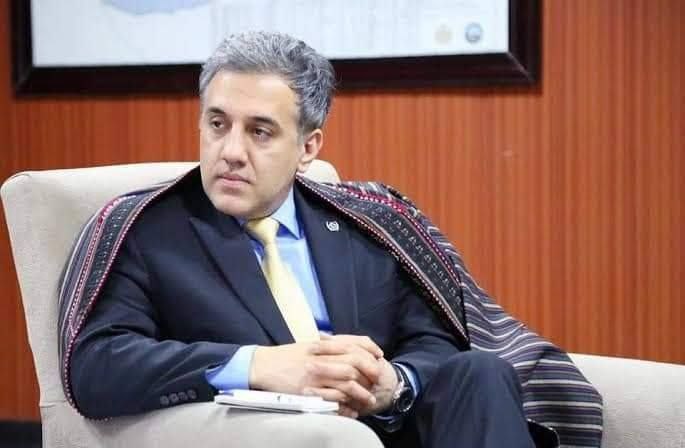BERLIN — Yama Yari, Afghanistan’s ambassador to Germany under the previous government, on Monday announced his resignation, citing pressure from the German government to engage with the Taliban.
In a statement, Afghanistan’s Embassy in Berlin said Yari stepped down because of challenges posed by Germany’s lack of official recognition of the Taliban-led administration.
“In recent months, the consular processing of documents for Afghan missions in Europe and other parts of the world has faced significant obstacles due to the absence of formal engagement with Kabul [the Taliban],” the statement read.
Consul general in Bonn also resigns
Yari’s resignation follows that of Lotfullah Sadat, Afghanistan’s consul general in Bonn, who stepped down earlier, citing political considerations by Germany and a desire to “prevent further complications” for Afghan citizens.
Sadat revealed that financial accounts for the Afghan Consulate in Bonn and other Afghan diplomatic missions in Germany had been under “direct oversight” by the German government for the past three years.
In late October, a source told Amu that the German government had requested both the Afghan ambassador in Berlin and the consul general in Bonn to vacate their positions, adding that Germany would not allow Taliban-appointed representatives to assume these roles.
Limited consular operations
While Germany has permitted technical staff at the Afghan Embassy in Berlin and the consulate in Bonn to continue their work, their roles are limited to maintaining essential consular services for Afghan citizens.
Diplomatic uncertainty persists
In August, the Taliban declared five Afghan diplomatic missions in Europe as officially recognized by their administration: embassies in Spain, Bulgaria, the Netherlands, and the Czech Republic, along with the consulate in Munich, Germany.
However, more than three years after the Taliban’s return to power, no country has formally recognized their government. Many Afghan diplomatic missions, including the United Nations mission, remain staffed by diplomats appointed by the previous government.
This lack of recognition has left Afghanistan’s diplomatic missions in limbo, as host countries grapple with the challenge of maintaining services for Afghan citizens while avoiding legitimizing the Taliban’s rule.





